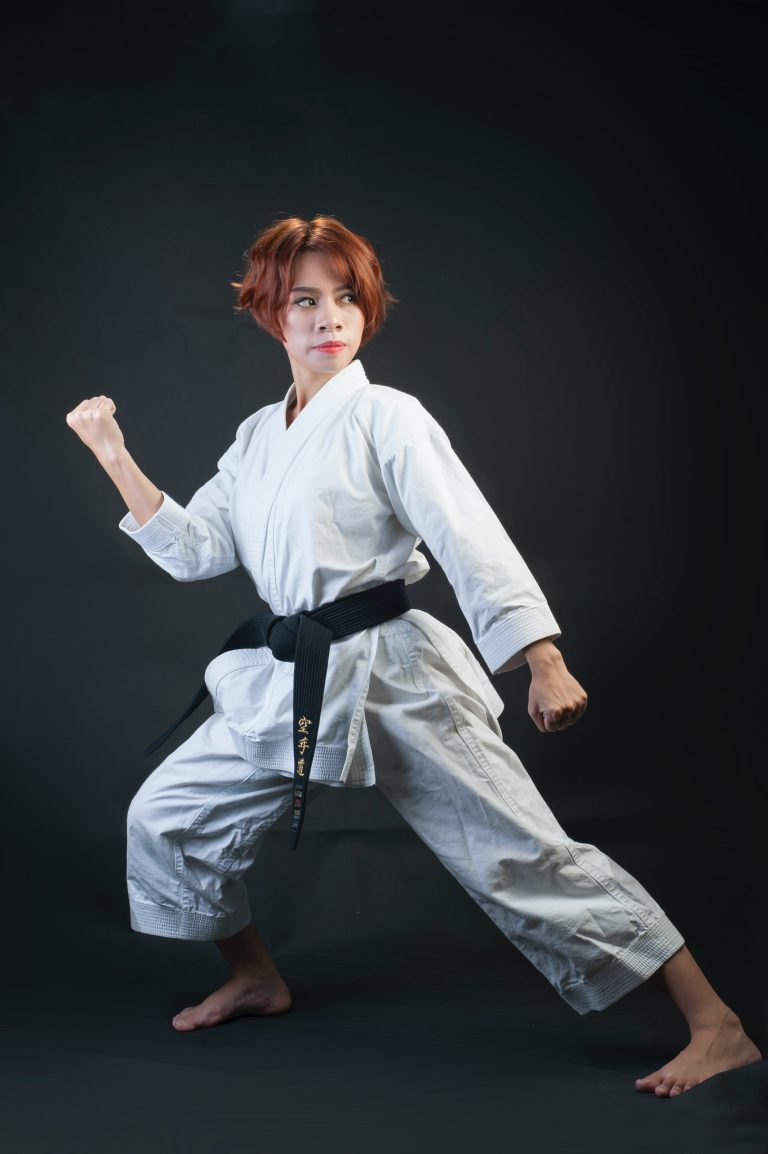Is Karate Good Exercise?
Karate is a martial art that involves various techniques such as punches, kicks, and strikes. The practice originated in Okinawa, Japan and has since grown in popularity worldwide. It is not only a self-defense technique but also a form of exercise that can benefit the body in several ways. In this article, we will explore if karate is a good exercise by discussing its benefits, techniques, and comparison with other exercises.
Karate Benefits for Body and Mind
As a form of exercise, karate offers several benefits for both the body and mind. Below are some of the advantages of practicing karate regularly:
1. Helps In Weight Control
Karate workouts involve high-energy movements such as kicks, jumps, and punches, which help to burn calories and promote weight loss. According to a study published by Harvard Health, an average person can burn up to 500 calories in an hour of karate practice.
2. Increases Strength and Endurance
Karate involves numerous techniques that require body strength, including punches, kicks, and throws. Regular practice of karate can develop the muscles in the upper body, lower body, and core, increasing overall strength and endurance.
3. Enhances Flexibility and Balance
Karate requires frequent and dynamic movements that increase flexibility in the body. The practice also involves techniques such as kicks and spins, which improve balance and coordination, reducing the risk of falls and injuries.
4. Reduces Stress and Anxiety
Karate is not only a physical exercise but also a mental and emotional one. Engaging in karate practice can help to reduce stress and anxiety by promoting mental strength and focus.
Karate Techniques
Karate techniques are divided into three categories: kihon (basics), kata (patterns), and kumite (sparring). Kihon involves basic techniques such as punches, kicks, stances, and blocks. Kata involves performing pre-arranged sequences of movements that mimic fighting situations. Kumite involves sparring with a partner.
Kihon
Kihon is the foundation of karate practice. In kihon, karate students learn the fundamental techniques that are required in kata and kumite. Below are some basic kihon techniques:
– Zenkutsu-dachi (front stance)
– Seiunchin-dachi (horse stance)
– Gyaku-zuki (reverse punch)
– Mae-geri (front kick)
Kata
Kata is a series of movements that simulate fighting situations. Practicing kata helps karate students to learn techniques and positions that are not possible to do with a partner. There are many kata patterns in karate, each having a unique set of techniques that reflect its origin and purpose. Some of the popular kata patterns include:
– Heian Shodan
– Bassai Dai
– Tekki Shodan
– Kanku Dai
Kumite
Kumite is the practice of sparring with a partner. In kumite, students apply the techniques learned in kihon and kata in a live situation. There are different types of kumite, including jiyu kumite (free sparring) and ippon kumite (one-step sparring). Kumite allows karate students to test their skills and improve their reaction time.
Karate vs. Other Exercises
While karate has its unique set of benefits, it is essential to understand how it compares with other exercises. Below are some exercises that are similar to karate regarding their physical and mental benefits:
1. Boxing
Boxing is a combat sport that emphasizes punching techniques. Like karate, it involves high-intensity movements that release endorphins, promoting stress relief. However, boxing does not offer the same level of flexibility and balance training that karate does.
2. Yoga
Yoga combines stretching, poses, and breathing techniques to enhance flexibility, balance, and relaxation. Unlike karate, yoga is a low-impact exercise that does not involve striking or kicking techniques.
3. Running
Running is a cardiovascular exercise that helps to improve endurance and burn calories. Running does not promote the same level of strength training or body coordination as karate does.
Frequently Asked Questions About Karate as an Exercise
Karate is a form of martial arts that originated in Okinawa, Japan. It has gained popularity all over the world not only as a form of self-defense but also as a form of exercise. Many people ask if karate is a good exercise. In this article, we will answer some of the most frequently asked questions about karate as an exercise.
1. What are the physical benefits of karate?
Karate offers many physical benefits, including increased cardiovascular endurance, improved balance and coordination, increased flexibility, and strength. Karate training involves a series of punches, kicks, and strikes that require a significant amount of physical exertion. This type of training will help to improve your overall fitness level and stamina.
2. Is karate considered a high-intensity workout?
Karate can be considered a high-intensity workout depending on the style and intensity of the class. Most karate classes involve a combination of strength and endurance training, which can result in a high intensity and calorie-burning workout. However, the level of intensity can vary depending on the instructor and the individual’s fitness level.
3. Can karate help with weight loss?
Karate can help with weight loss due to the high intensity and calorie-burning nature of the workout. However, as with any exercise program, weight loss is dependent on several factors such as diet, frequency of training, and individual metabolism. Consistent training and a healthy diet can lead to weight loss.
4. Is karate safe for beginners?
Karate can be safe for beginners when taught by a qualified instructor in a controlled environment. It is important to find an instructor who is experienced in teaching beginners and can provide proper instruction and training to prevent injury. It is also important for beginners to start with beginner-level classes and slowly progress to more advanced classes.
5. Can karate help with stress relief?
Karate can be a great stress reliever due to the physical and mental discipline required. The focus on breathing and mindfulness can lead to a reduction in stress and anxiety. Additionally, the physical activity can release endorphins, which can improve mood and reduce stress.
6. What is the best age to start karate?
Karate can be started at any age, but it is recommended to start at a younger age to develop proper techniques and habits. Many karate schools offer classes for children as young as 3 or 4 years old. However, adults can also benefit from starting karate at any age.
7. Can karate lead to injury?
Like any physical activity, karate can lead to injury if proper safety measures are not followed or if the individual has pre-existing medical conditions. It is important to warm up properly before training and to use proper protective gear such as gloves and mouthguards. It is also important to listen to your body and rest if you are experiencing pain or discomfort.
Is Karate Good Exercise?
Introduction
Karate is a traditional martial art that originated in Japan more than 100 years ago. It is not only an effective form of self-defense, but also a great way to improve fitness and overall health. In this post, we will examine whether karate is a good exercise and how it can benefit your physical and mental well-being.
What is Karate?
Karate is a martial art that focuses on striking techniques using hands, feet, elbows, and knees. It also includes blocking, grappling, and throwing techniques. Karate is practiced both as a sport and for self-defense. It has many variations and styles, including Shotokan, Goju-ryu, Wado-ryu, and Shito-ryu.
Is Karate a Good Exercise?
Yes, karate is an excellent form of exercise. It can provide a full-body workout that improves cardiovascular health, muscular strength, and flexibility. Karate movements require coordination, balance, and agility, which can enhance overall motor skills.
Physical Benefits of Karate
Karate involves a wide range of movements, such as punching, kicking, blocking, and evading. These movements can engage various muscle groups, including the arms, legs, shoulders, and core. Karate can improve muscular endurance and strength, as well as increase bone density and joint flexibility.
Cardiovascular Health
Karate is an intense, high-impact activity that can elevate heart rate and improve cardiovascular health. Karate movements can increase oxygen consumption, which improves lung capacity and blood flow. According to a study published in the Journal of Strength and Conditioning Research, practicing karate can increase aerobic capacity and reduce body fat in overweight adults.
Muscle Strength
Karate movements require the use of both fast-twitch and slow-twitch muscle fibers, which can enhance overall muscle strength and endurance. According to a study published in the Journal of Sports Science and Medicine, practicing karate can increase leg strength, especially in the hip flexors and knee extensors.
Flexibility and Balance
Karate involves a range of dynamic and static stretches, which can improve flexibility and range of motion. Karate movements also require balance and coordination, which can enhance overall motor skills. According to a study published in the Journal of Physical Therapy Science, practicing karate can significantly improve balance control in elderly adults.
Mental Benefits of Karate
Karate can also have mental benefits, as it requires focus, discipline, and patience. Karate can improve mental toughness and resilience, as well as reduce stress and anxiety levels.
Mental Toughness
Karate training involves challenging oneself physically and mentally. It requires perseverance, determination, and grit to overcome personal limitations and achieve goals. Karate can improve mental toughness and resilience, which can translate to other areas of life.
Stress Reduction
Karate can be an excellent stress management tool. It provides an outlet for releasing tension and aggression, and promotes relaxation and mindfulness. According to a study published in the Journal of Bodywork and Movement Therapies, practicing karate can reduce stress levels and improve subjective well-being.
Conclusion
Karate is a great exercise that offers physical and mental benefits. It can improve cardiovascular health, muscular strength, and flexibility, as well as enhance mental toughness and reduce stress levels. Whether you practice karate for self-defense, sport, or fitness, it can be a rewarding and fulfilling activity. If you are interested in trying karate, be sure to find a reputable school or instructor to learn proper technique and safety precautions.
Inhaltsverzeichnis






